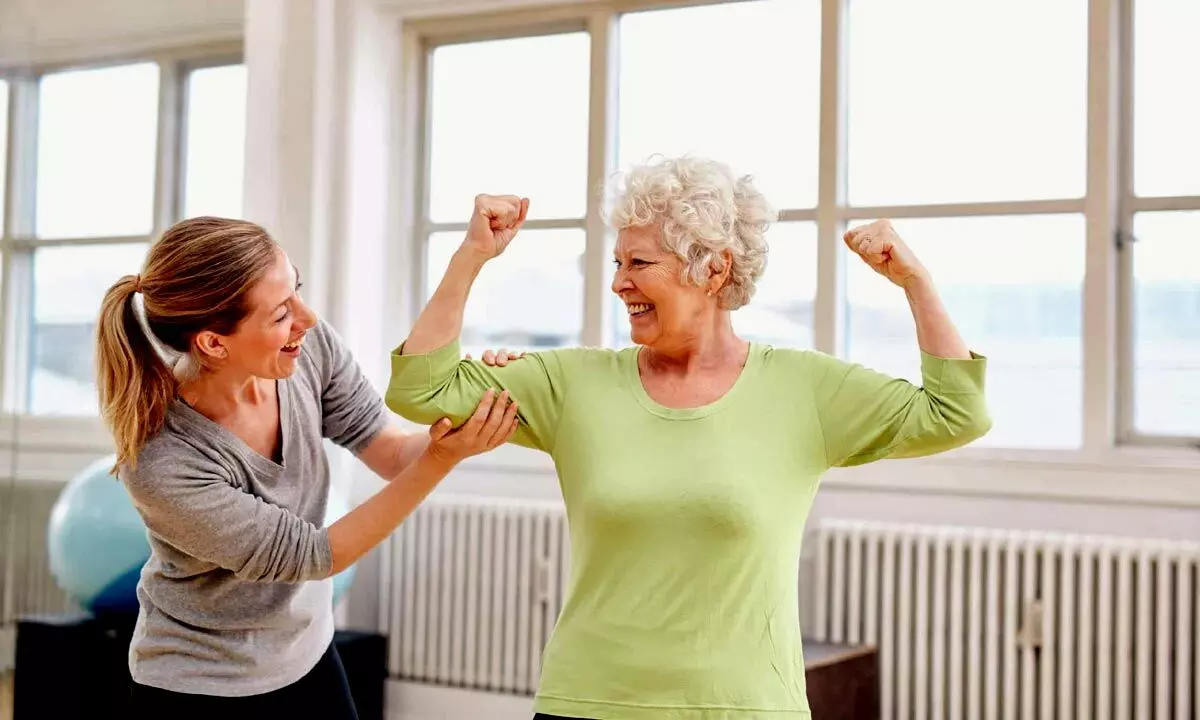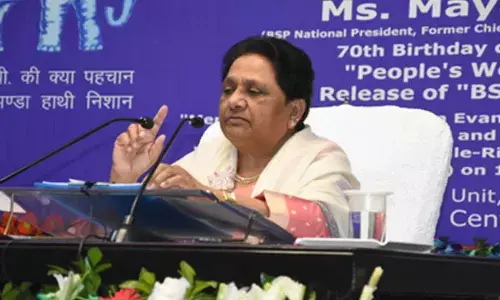What women need to know about bone health

What women need to know about bone health
According to World Health Organisation figures, around 30 per cent of postmenopausal suffer from osteoporosis, a condition where bones become weak and brittle, and may increase the risk of fractures. In India alone, around 61 million people are reported to have osteoporosis, out of which 80 per cent are women
Bones are a crucial element for the human body's musculoskeletal system along with ligaments, muscles, tendons, and soft tissues. They perform a variety of functions ranging from providing a structural foundation, enabling movements, storing minerals, protecting organs, as well as serving as a medium for the production of blood cells.
According to World Health Organisation figures, around 30 per cent of postmenopausal suffer from osteoporosis, a condition where bones become weak and brittle, and may increase the risk of fractures. In India alone, around 61 million people are reported to have osteoporosis, out of which 80 per cent are women. The alarm bells are right there, which is why women should be aware of some key information regarding bone health:
Bone density decreases with age: Women typically experience a decline in bone density after menopause. This is due to a decrease in the hormone estrogen, which helps maintain bone mass. As a result, the bones may become more susceptible to fractures and other injuries. However, one can combat this process by slowing it down to maintain bone health. It can be done by exercising regularly as well as keeping a balanced diet that is rich in calcium and Vitamin D. An alternative is to consume health supplements that compose of bone-building nutrients like Calcium, Magnesium, and Boron from marine algae called Lithothamnium Calcareum.
Calcium and vitamin D are essential for bone health: Adequate calcium and vitamin D intake are important for maintaining strong bones. While calcium is a major component of bone tissue, Vitamin D helps the body absorb the calcium from food. They not only promote bone strength and density but also help in reducing the risk of osteoporosis. Women should aim to consume at least 1000-1300 mg of calcium and 400-800 IU of vitamin D daily. One can include it in the form of supplements in their diet plan. It would be extremely fruitful for women to include health products that support calcium absorption and distribution in the body.
Weight-bearing exercise is important: Exercise that puts stress on the bones, such as walking, running, jogging, dancing, hiking, stair climbing, or weightlifting, can help build and maintain bone density. It is highly recommended that women engage in weight-bearing exercise for at least 30 minutes a day, at least four to five times a week, in order to promote bone health and overall fitness. It would also be extremely beneficial for women to include health products that are rich in estrogen-like compounds that are derived from plants. They help in providing hormonal balance with the help of Lodh Bark, Ashoka, and Black Cohosh which contain phytoestrogens. Such health products help in preventing bone loss and improving antioxidant and anti-inflammatory activity in the body.
Smoking and excessive alcohol consumption can harm bones: It's no surprise that smoking and excessive alcohol consumption can weaken bones and increase the risk of osteoporosis. Women with osteoporosis are at increased risk of fractures, which can lead to pain, disability, and reduced quality of life. Smoking can lead to a reduction in the amount of calcium that is absorbed by the body, which can further weaken bones. On the other hand, the consumption of alcohol can interfere with the production of new bone tissue, while also increasing the risk of falls and fractures due to its effects on balance and coordination.
Certain medications can affect bone health: Some medications, such as corticosteroids, can weaken bones and increase the risk of osteoporosis. Another medicine is anticonvulsants, which are used to treat seizures. Unfortunately, they can also interfere with the body's ability to absorb calcium, leading to a higher risk of bone loss and fractures. Women who are taking these medications should discuss their bone health with their doctor. On the other hand, women can consume supplements that include NatCaZen, a proprietary blend with 100 per cent plant-based Calcium. It helps enhance bone mineral density and offers sufficient bone protection.
Family history of osteoporosis is a risk factor: Women with a family history of osteoporosis are at a higher risk of developing the condition themselves. This is down to several factors which may include hormonal changes during menopause, the presence of smaller bones as compared to men, and even longer life expectancy. What's scary is that fractures caused by osteoporosis can be serious, especially in older women. However, women can consume supplements that possess Ayurvedic herbal extracts like Lodh Bark, Ashoka, and Black Cohosh. It can help control the onset of osteoporosis by maintaining estrogen balance.
Regular bone density tests are important: Women should discuss the need for regular bone density tests with their doctors, especially as they age. Firstly, they help in assessing the risk of osteoporosis, while also monitoring bone health over periods. The test becomes the basis for taking treatments to prevent further bone loss and reduce fractures.
It's important for women to take steps to maintain their bone health throughout their lives. This includes eating a healthy diet, getting enough exercise, and avoiding risk factors such as smoking and excessive alcohol consumption.















